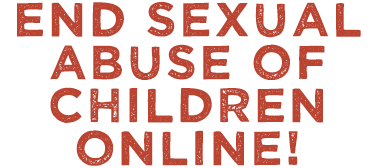
All of us – parents, teachers, communities, governments, – must ensure that technology and new media help children to explore, learn and develop, and not to fall prey to sexual exploitation and abuse.
Thorbjørn Jagland - November 2017
Secretary General of the Council of Europe
WHAT RISKS DOES YOUR CHILD FACE ONLINE?
Children are going online more, at a younger age, and in more diverse ways. Social media and messaging can bring children in contact with sexual offenders.

Sex threats to your children on the web - facts you should know:
Source: EU Kids Online Survey 2014
SEXTORTION
Blackmail with a child’s own pictures
SEXTING
You film it, you send it, you lose it
47%
did it to get noticed
45%
did it through stupidity
28%
did it to attract the attention of a person they liked
14%
were forced to do it
Source: Pan-European Insafe Youth Panel Survey (2011)
SEX-CHATTING
First step to child grooming?
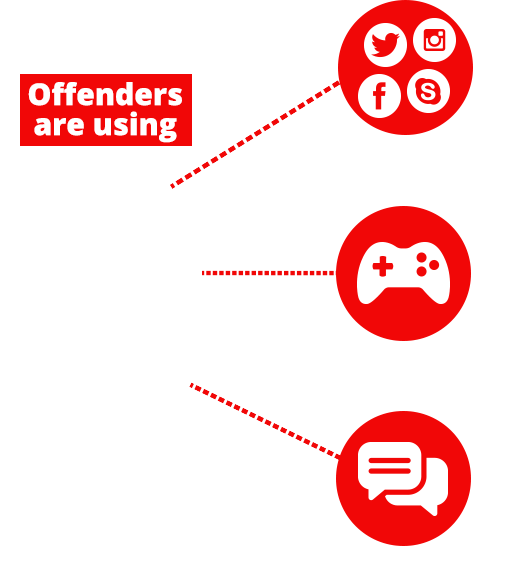
GROOMING
Why do children trust online friends?
Online sexual abuse, even if it does not lead to a physical meeting, can be very traumatic for the child. The Council of Europe special opinion on “online grooming” offers guidance to states looking to go one step further in the criminalisation of online grooming under national law.
REVENGE PORN
Post-breakup nasty stories can make your child’s life hell
Germany, France, Malta and the UK have adopted laws against non-consensual sharing of images in an attempt to fight against revenge porn.
TALK TO YOUR CHILD!
Children online are vulnerable to sexual abuse – As a parent, how can I help prevent it?
Talk to your children about who they are talking to online, what they are doing online, where they are going online and when they are going online.
Keep the dialogue open – even when the subject may be uncomfortable for you – as it is the best way to stay informed about your child’s online activities.
Alongside the “safe sex” talks with your children, consider having a “safe tech” and a “safe content” internet talk, and explain the inappropriateness and risks of sexy or extremist photos, talk or messages. 
EU KIDS ONLINE 2014
SMART rules for young children:
Keep safe by being careful not to give out personal information.
someone you have only been in touch with online can be dangerous.
e-mails, IM or instant messages or opening files from people you don’t know or trust can be dangerous.
someone online may be lying about who they are.
your parent, carer or a trusted adult if someone or something makes you feel uncomfortable or worried.
Source: Childnet
Governments must prevent, protect, prosecute!
The Lanzarote Convention obliges countries to criminalise all kinds of sexual offences against children through specific legislation, and requires them to take measures to prevent sexual violence, to protect child victims and to prosecute perpetrators.
Sexual offences facilitated by information and communication technologies must be criminalised, too.
Of 47 member States of the Council of Europe, 42 have ratified the Lanzarote Convention. Armenia, Azerbaijan, Ireland, Norway, and the United Kingdom have signed, but not ratified the convention. The Convention is also open to non-member States.
Protecting children against criminal exploitation of self-generated images: what is being done?
A new monitoring round to see how European states protect children against the criminal exploitation of child self-generated images, in particularly sexually explicit images and videos, was launched in May 2017. The replies by all 42 States Parties and the input from civil society will be examined in detail in 2018.
#EndChildSexAbuseDay
(18 November)
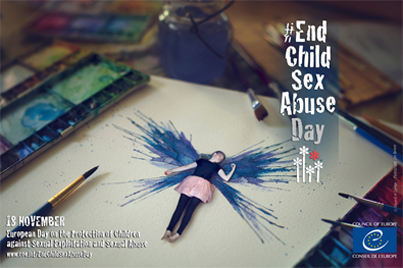
The European Day on the Protection of Children against Sexual Exploitation and Sexual Abuse was created to raise awareness of sexual violence against children and promote the protection of their rights. It’s an occasion to foster public debate around this sensitive topic, to assist victims, to end their stigmatisation, and to promote the Lanzarote Convention.
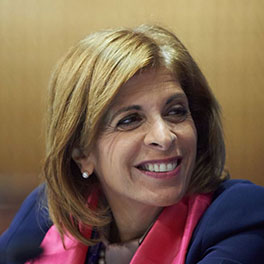
The well-being of children is paramount for all of us. They are our future. It is up to us to keep them safe in every way we can. 
Stella Kyriakides - November 2017
President of the Parliamentary Assembly of the Council of Europe
Resources and tools from the Council of Europe to raise awareness of sexual abuse of children …




